JENNINGS, Humphrey
Frank Humphrey Sinkler Jennings was born at ‘The Gazebo’, Walberswick, Suffolk on 19 August 1907, elder of the two sons of Frank Jennings (25 April 1877–10 December 1962), an architect, and his wife, Mildred Jessie née Hall, who married at St Mary's Church, Lewisham on 8 November 1906. In 1916, young Frank entered Perse School, Cambridge, when the classicist Dr William Henry Denham Rouse (1863-1950) was headmaster and Caldwell Cook (1885-1939) was the teacher of English. Jennings excelled at both work and at games and showed promise as an actor, set designer, and poet. In 1926 he won a scholarship from Pembroke College, Cambridge, to read for the English tripos. He painted a great deal, designed sets for many theatrical productions, including the first British performances of Stravinsky's 'The Soldier's Tale' and Honegger's 'King David' and, together with fellow undergraduates Jacob Bronowski (1908-1974) and William Empson (1906-1984), founded and wrote for 'Experiment', a student magazine. Jennings married at Kensington, London on 19 October 1929, Cicely Mary Wilhelmina Raymonds Cooper (25 April 1908-28 September 1975), daughter of Richard Synge Cooper (1869-1937), a civil engineer. Shortage of money necessitated him taking various employments, a schoolteacher in Salisbury, a textile designer in Paris and a set designer at the Festival Theatre in Cambridge. In 1934 he joined the General Post Office film unit, later renamed the Crown Film Unit, which gave him training as an editor and director. For a brief period, he became a leading figure of the British surrealist movement and, with others, organised the famous International Surrealist Exhibition of 1936 in which his collage 'Minotaur', an unflattering portrait of Lord Kitchener, was one of the notable exhibits. One of his principal publications for Faber and Faber was 'May the Twelfth: Mass-Observation Day Surveys' (1937), a collage account of George VI's coronation. Jennings's first distinctive film, 'Spare Time' (1939) marked Jennings's full-time return to the General Post Office film unit, where he remained until after the Second World War, his works included 'Listen to Britain' (1942), 'Fires were Started' (1943), and 'A Diary for Timothy' (1945) and after the war 'A Defeated People' (1945), 'The Cumberland Story' (1947), 'The Dim Little Island '(1949), and 'Family Portrait' (1950). His main post-war employer was with Wessex Films and in 1982 he held an exhibition of paintings and films at London's Riverside Studios. Jennings was appointed an OBE in 1946, for contributions to sustaining morale at home and for publicising the British cause abroad. Frank Humphrey Sinkler Jennings died on the Greek island of Poros, after falling from a cliff while scouting locations for a film about health services in Europe, on 24 September 1950 and buried in the Protestant cemetery in Athens.
Works by This Artist
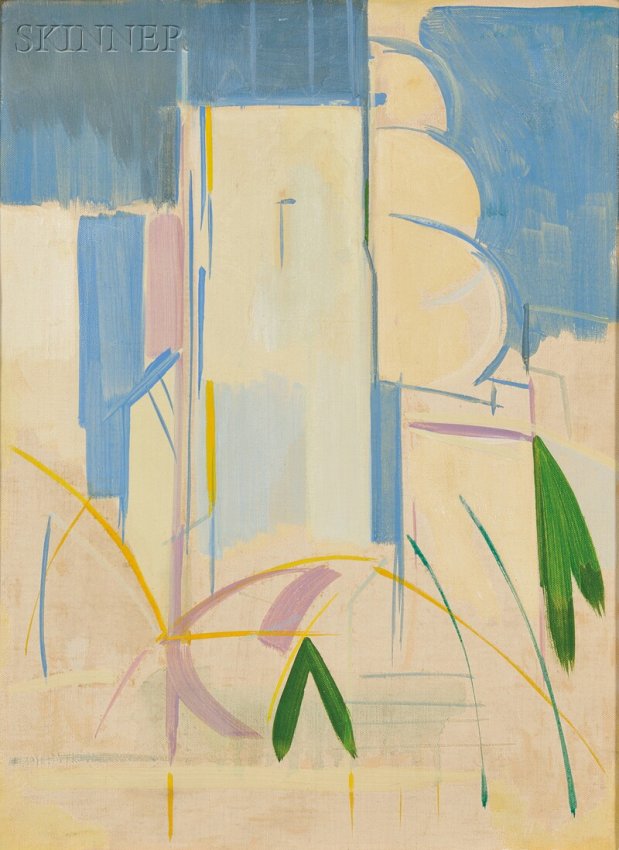
|
The Butterfly and The TowerOil on canvas
|
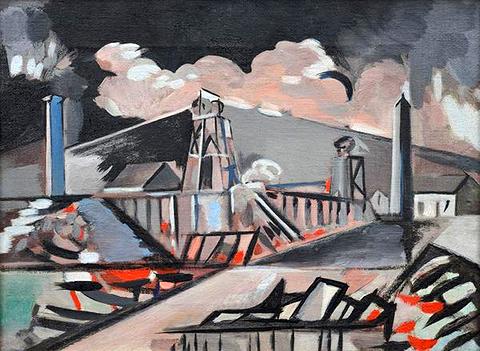
|
PitheadOil on linen
|
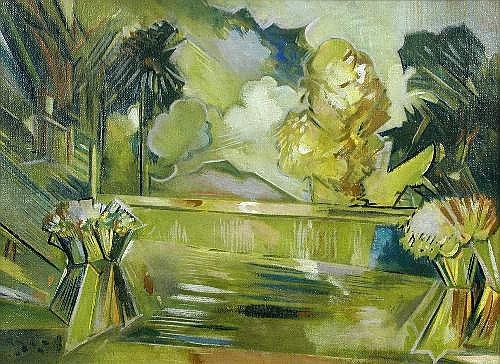
|
Harvest FieldOil on canvas
|
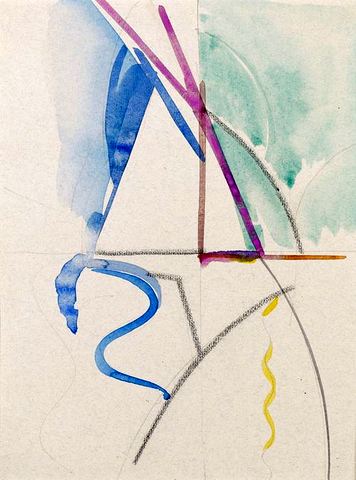
|
The Purple YachtPencil, black chalk and watercolour
|
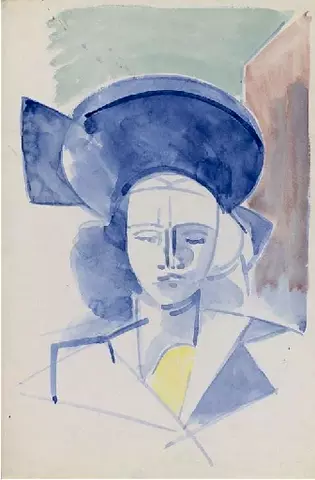
|
Portrait of a FemaleWatercolour
|